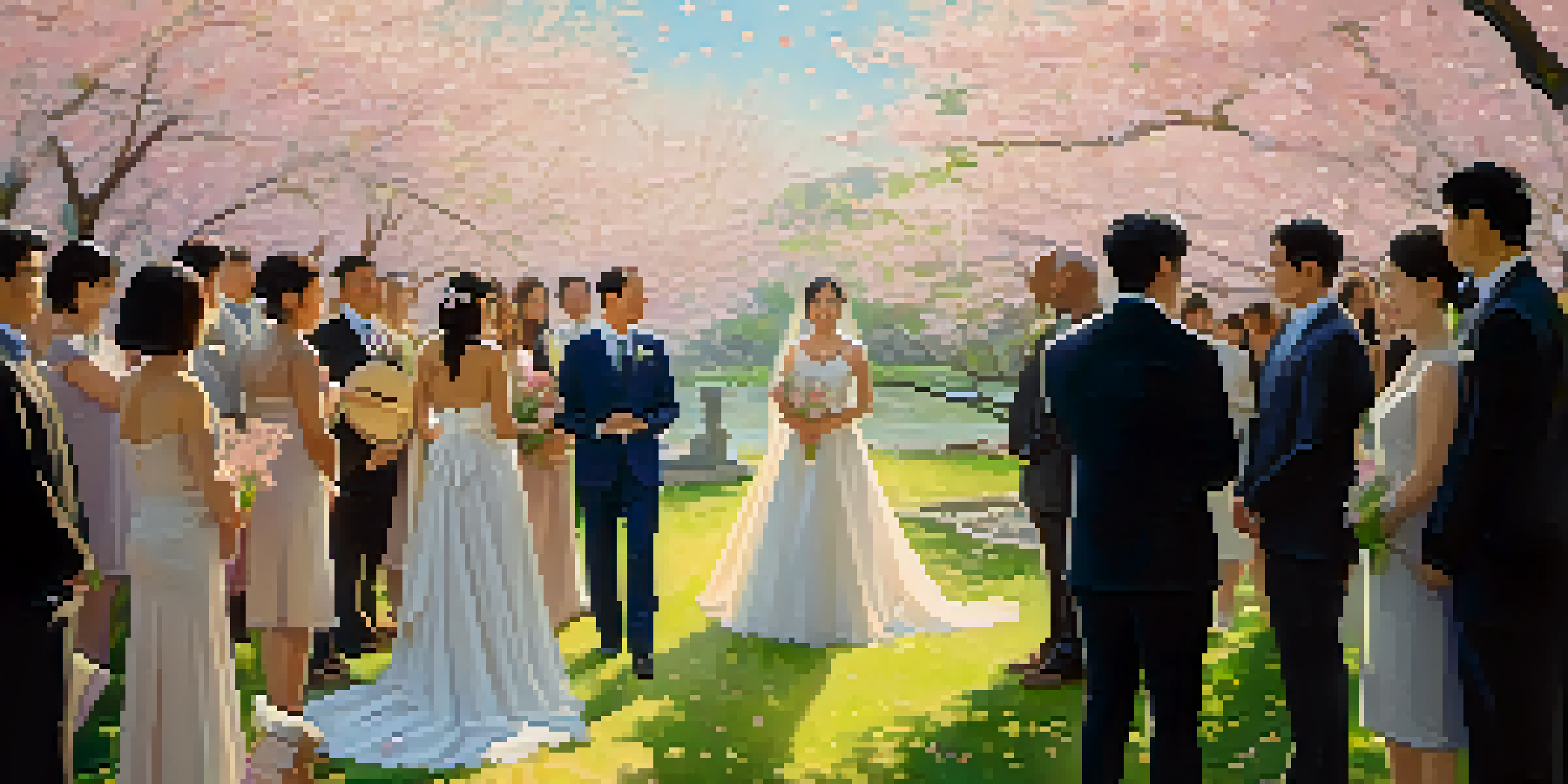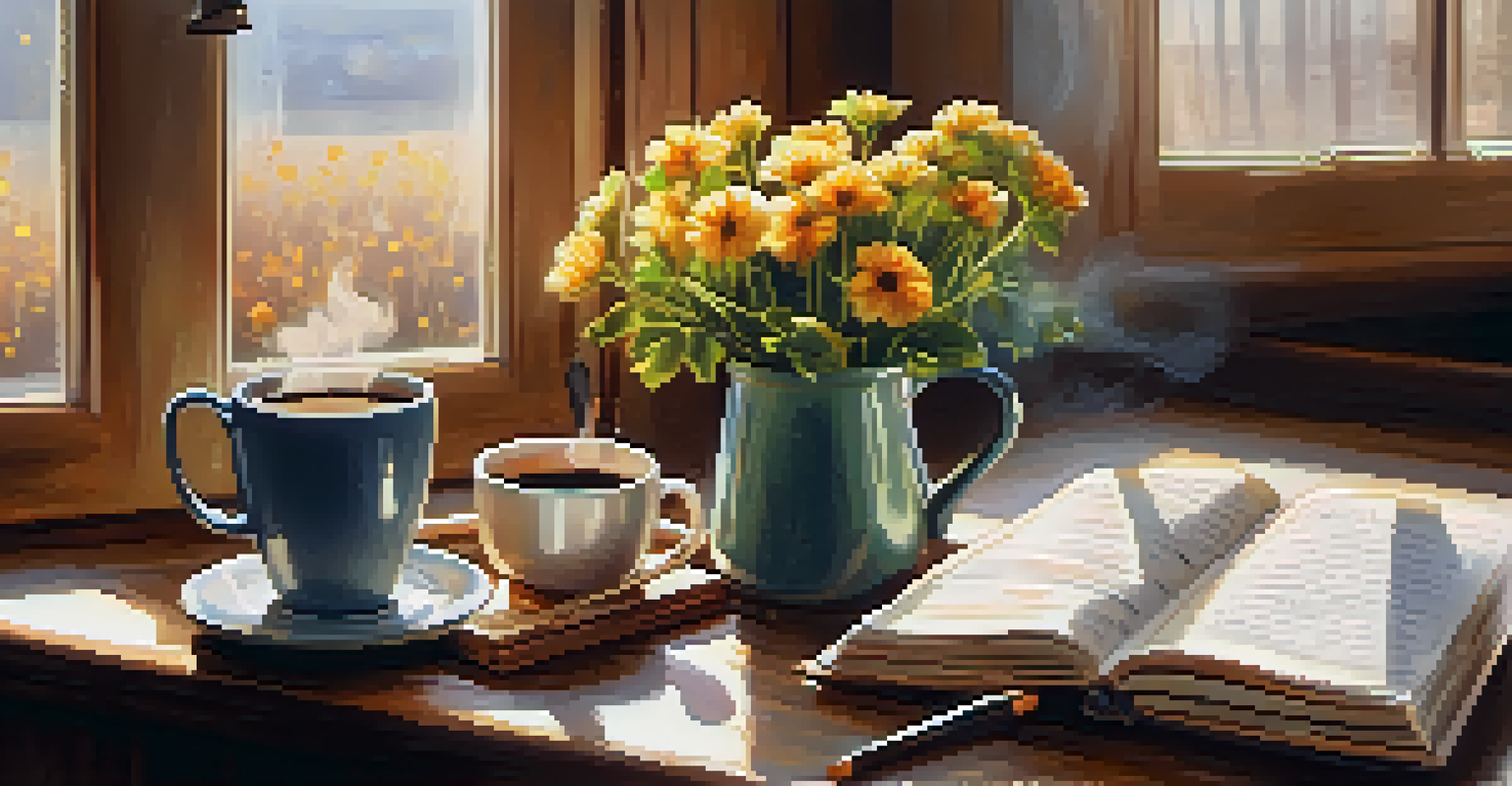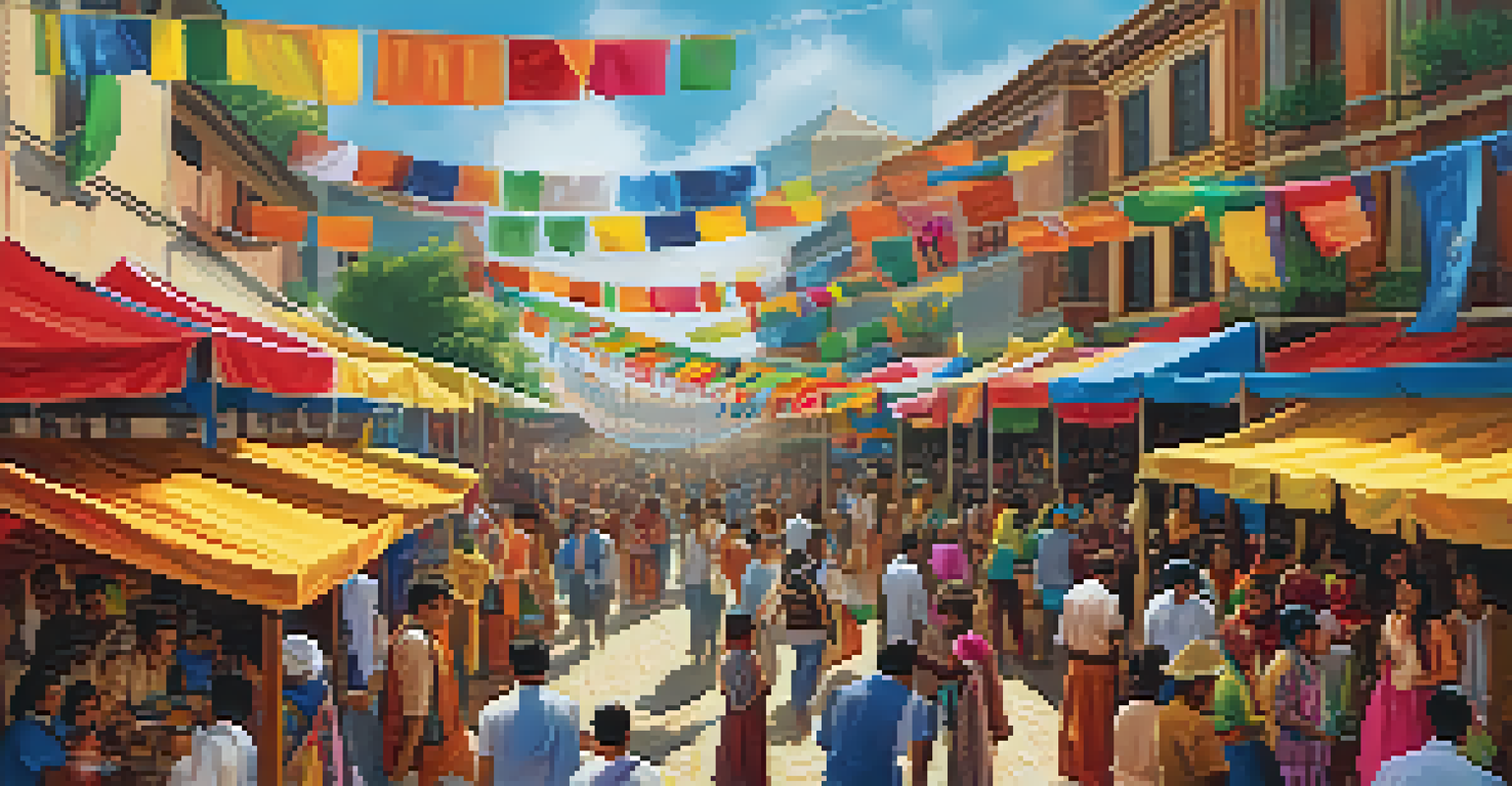The Evolution of Rituals: From Ancient Traditions to Modern Practices

Understanding Rituals: A Definition and Their Purpose
Rituals are structured actions often performed in a specific order, usually tied to cultural or religious significance. They serve to mark important life events, connect individuals to their community, and provide a sense of belonging. Just think of a wedding ceremony; it’s not just about two people coming together, but about uniting families and communities in celebration.
Rituals are the formulas by which harmony is restored.
At their core, rituals help individuals navigate transitions and changes in life. From birth to death, rituals provide a framework that can make overwhelming moments feel more manageable. They remind us of our shared humanity, drawing us together across generations and geographic boundaries.
In essence, rituals give meaning to our lives. They encapsulate values, beliefs, and traditions that are passed down, ensuring that the lessons and experiences of previous generations are honored and remembered.
Ancient Rituals: Roots in Culture and Religion
Looking back at ancient civilizations, rituals were deeply intertwined with their belief systems. For example, the Egyptians performed elaborate burial rituals to ensure safe passage to the afterlife. These practices not only reflected their spiritual beliefs but also reinforced societal structures and hierarchies.

Similarly, indigenous cultures around the world employed rituals to connect with nature and the spiritual realm. Whether it was a rain dance or a coming-of-age ceremony, these rituals were crucial for survival and community cohesion. They also served as a way to pass on knowledge and wisdom through storytelling.
Rituals Foster Community and Belonging
Rituals serve to connect individuals to their communities, marking significant life events and providing a sense of shared identity.
These ancient practices reveal the fundamental human need for connection, purpose, and understanding of the universe. As we explore the evolution of rituals, we see how they've adapted over time while still holding onto their core functions.
The Role of Rituals in Medieval Societies
During the medieval period, rituals evolved further, particularly within religious contexts. The Catholic Church, for instance, established a series of sacraments that provided a structured approach to spirituality. These rituals not only guided individual believers but also unified communities under shared practices.
Rituals are the building blocks of our culture. They define who we are and how we connect with others.
Feudal societies also saw the rise of secular rituals, such as tournaments and feasts, which reinforced social hierarchies and power dynamics. These events were not merely about entertainment; they were vital for maintaining loyalty and order within the realm. They created a sense of identity and belonging among participants.
The blending of sacred and secular rituals during this time showcases how deeply ingrained these practices were in societal structures. As life became more complex, so did the rituals that guided people through various life stages.
Rituals in the Age of Enlightenment and Beyond
The Enlightenment brought a shift in thinking, emphasizing reason and individualism. This period saw a decline in traditional religious rituals, as people began to seek meaning beyond established doctrines. However, this didn't eliminate the need for rituals; instead, it led to the emergence of new practices.
For instance, the rise of secular ceremonies like graduations and civic celebrations marked important milestones in individuals' lives. These modern rituals reflect a broader societal shift towards valuing personal achievement and collective identity outside of religious contexts.
Rituals Adapt to Changing Values
As society evolves, rituals transform to reflect contemporary beliefs and practices, such as personalized ceremonies and eco-friendly traditions.
This evolution illustrates how rituals can adapt to the values of their time while still fulfilling the same essential functions: marking transitions and fostering community.
Modern Rituals: New Traditions in Contemporary Life
In today’s fast-paced world, rituals have taken on new forms that resonate with contemporary values. For example, many people now celebrate milestones with personalized ceremonies, such as gender reveal parties or eco-friendly weddings, which reflect individual beliefs and priorities. These modern rituals often prioritize creativity and personalization over tradition.
Moreover, technology has influenced how we perform rituals. Virtual celebrations, such as online memorials or digital weddings, have emerged, allowing people to connect despite physical distances. They demonstrate that the essence of ritual—bringing people together—remains unchanged, even if the medium does.
As society continues to evolve, so too will our rituals. They will adapt to reflect our changing values, ensuring their relevance in our lives.
Rituals and Mental Health: The Psychological Benefits
Rituals play a significant role in mental health and well-being. Engaging in regular rituals can provide comfort and stability in an unpredictable world. For instance, simple routines like morning coffee rituals can create a sense of normalcy and help individuals start their day on a positive note.
Additionally, rituals can be a valuable coping mechanism during times of stress or grief. They provide a structured way to process emotions and can help individuals feel more in control of their circumstances. This is evident in practices like lighting a candle in remembrance of a loved one, which can offer solace and community support.
Rituals Enhance Mental Well-Being
Engaging in regular rituals can offer comfort and stability, helping individuals cope with stress and navigate life’s challenges.
By integrating rituals into our daily lives, we can harness their power to enhance our mental well-being and foster resilience.
The Future of Rituals: Embracing Change and Innovation
As we look to the future, it's clear that rituals will continue to evolve. With globalization and the blending of cultures, we may see new rituals emerge that draw from a diverse range of traditions. This fusion can enrich our experiences and foster greater understanding between different communities.
Moreover, as societal norms shift, rituals will likely reflect changing values, such as sustainability and inclusivity. We may see the rise of eco-conscious ceremonies that prioritize environmental responsibility, illustrating how rituals can adapt to current challenges.

Ultimately, the evolution of rituals is a testament to human creativity and resilience. No matter how they change, rituals will remain a vital part of our lives, helping us navigate the complexities of existence.